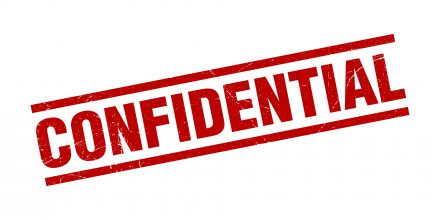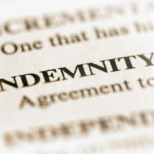
What is legal professional privilege and why is it important in a business dispute?
16th August 2023 by Brendan Herbert
‘When you communicate with your lawyer, it is vital that those communications remain confidential, especially if your business is heading towards a dispute with another company that could end up in court. Equally, where evidence and information is gathered for the purpose of a legal dispute in court, there must be protection available for you against having to disclose that information. All lawyers, and some third parties, are therefore subject to ‘legal professional privilege’, which prevents disclosure of confidential information,’ says says Brendan Herbert, head of the Dispute Resolution team at Laceys Solicitors.
If information is released that is subject to legal professional privilege, it can be devastating and can cause irreversible damage to your case, so it is vital you recognise what is protected and why, and work with your solicitor to ensure that it remains protected.
Brendan provides a brief overview of what legal professional privilege means, what privilege covers, how it works in practice, and how to make sure that privilege is not lost and valuable information disclosed.
Types of legal professional privilege
There are two types:
- Legal advice privilege – this applies to confidential communications between a lawyer and you as their client, which occurs when you seek legal advice from that lawyer.
- Litigation privilege – this applies to confidential information (both written and oral) that arises between you and your lawyer, or other third parties, which have arisen or exist due to current or contemplated litigation in court.
How legal professional privilege arises
While legal advice privilege and litigation privilege are very similar, how each privilege arises is slightly different.
Legal advice privilege
Legal advice privilege can only be claimed over communications that are confidential, and that pass between a client and their lawyer, which must have come into existence for the dominant purpose of giving or receiving legal advice in a relevant legal context.
The criteria of ‘client,’ ‘confidential,’ ‘lawyer’ and ‘relevant legal context’ are strict, and the burden is on you to prove this if you are claiming privilege.
- Client – this is restricted to a specific client only, so communications with anyone other than you are not covered. If you are a director of a company, then privilege may be extended to others who are authorised by the company to seek and receive legal advice from the lawyer, rather than just one person, but it is unlikely to extend to all employees generally.
- Confidential – privilege can only cover communications that are not already in the public domain, and that are strictly between you and your lawyer and relate to legal advice. For example, a communication providing advice to you or your company from a lawyer, or from you requesting legal advice. If this is released more widely however, for example if that advice is disclosed to external third parties, it may lose its privileged status.
Not all communications are classed as confidential just because they are between you and your lawyer. The confidential communication must have come into existence for the dominant purpose of giving or receiving legal advice. Background documents that you might include when seeking advice are not covered if they were already in existence.
- Lawyer – this includes all members of the legal profession such as solicitors, barristers, in-house lawyers, and foreign lawyers. For example, advice you might receive from your tax lawyer can be subject to privilege but advice from your tax accountant cannot be, as they are not a lawyer, even if they may be providing you with legal advice around your tax claim.
- Relevant legal context – means that the advice must be legal advice. So advice given by an in-house lawyer to a company about financial or administrative issues will not attract privilege.
Litigation privilege:
This can include communications or documents involving third parties, but only if made for the dominant purpose of either existing, pending, or contemplated court proceedings.
For example, if evidence is gathered from investigations made when you are deciding to either defend or bring a claim, this may be covered by privilege.
This privilege only covers confidential information that is not already in the public domain.
When can legal professional privilege be used and for what reason?
Legal advice privilege exists to allow you to ask for and receive legal advice from your lawyer, allowing you to disclose confidential information without risk that this may be disclosed to others. Without this privilege, you may be reluctant to seek legal advice, which can easily lead to mistakes being made and damage caused.
Litigation privilege exists due to the general principle that a person involved in or intending to be involved in a court case should be free to make relevant investigations and explore evidence without the obligation to disclose the results of investigations to the other side, potentially prejudicing your case.
Both forms of privilege belong to you, or your company only, and must be maintained until it is waived only by you, no one else.
What is classed as privilege and what is not?
The criteria set out above must be followed in order for you to be able to claim information as privileged.
How can privilege be lost?
Privilege can be waived by you voluntarily. However, it is most likely to be lost if it does not comply with the criteria required as listed above.
The most common reason is the loss of confidentiality. This might be due to inadvertent disclosure of, or reference to, the privileged materials in another way which puts those materials out into the public domain.
This might be done on purpose, for example, if you want to rely on that material in evidence and disclose it during the course of proceedings.
It may also be as a result of a mistake, by putting privileged information out into a wider domain, for example by putting information on a website, or including it in correspondence to staff, or externally.
How we can help
Legal professional privilege is a crucial right which allows you to consider your position without fear of disclosure of vital information. We help ensure that privilege is maintained to allow you the freedom to take advice you need, when you need it, to conduct litigation without fear of forced disclosure, and to protect you should you be asked to disclose privileged information in the future.
If you are facing issues over your confidential information, speak to one of our team. Our solicitors have many years’ experience in protecting our clients to make sure you can move forward without threat of disclosure of vital information.
For further information, please contact please contact Brendan Herbert on 01202 377810 or via email at b.herbert@laceyssolicitors.co.uk
This article is for general information only and does not constitute legal or professional advice. Please note that the law may have changed since this article was published.



